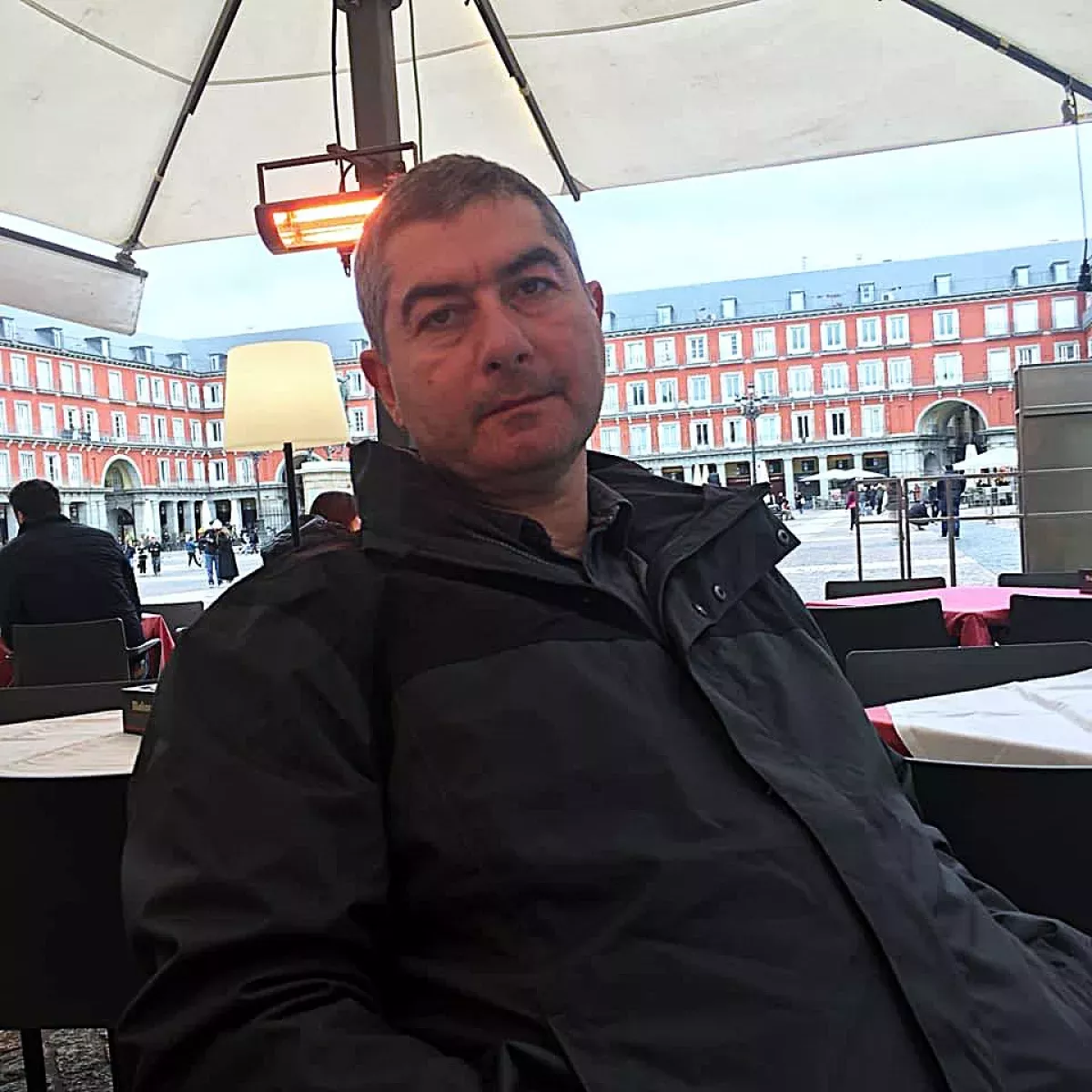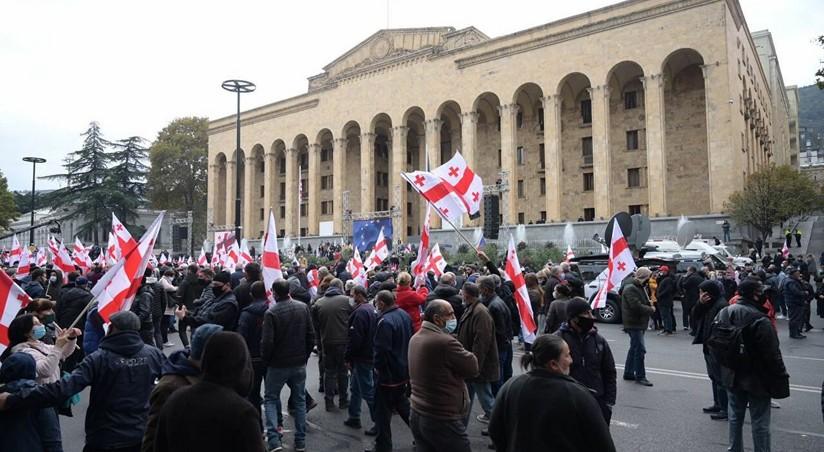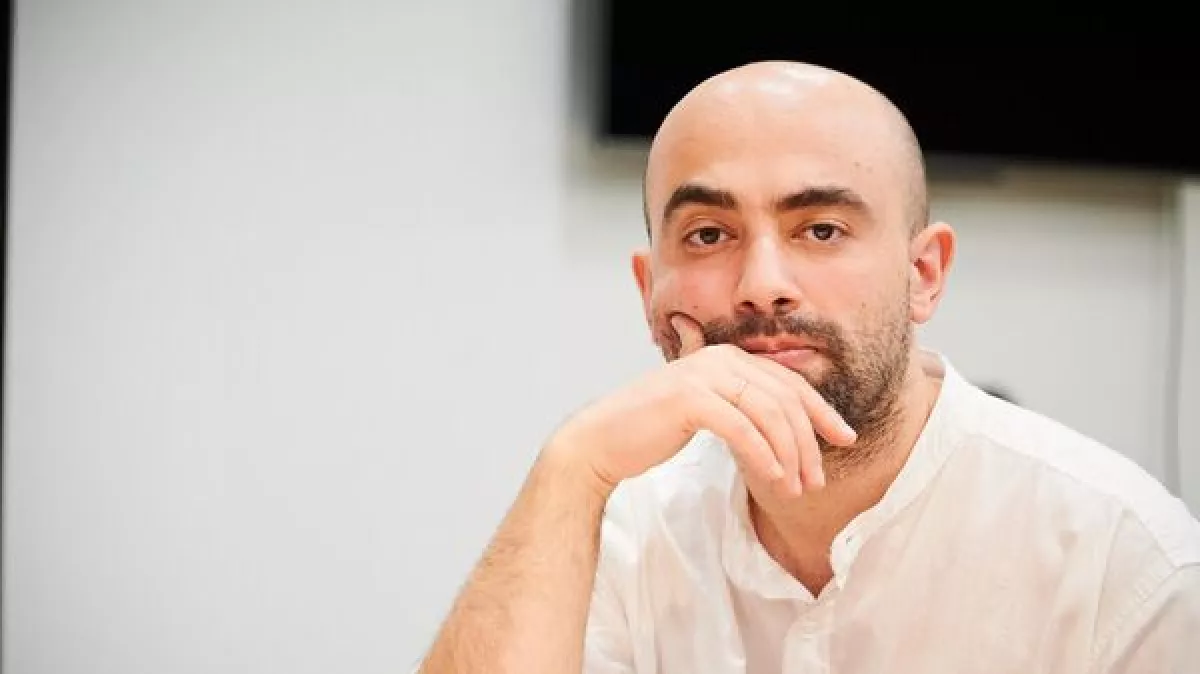October 4 unrest in Georgia: What went wrong for the opposition? Expert opinions on Caliber.Az
On the evening of October 4, protesters dissatisfied with the results of the municipal elections attempted to storm the Presidential Palace in Tbilisi but were pushed back by the police. Georgian Prime Minister Irakli Kobakhidze accused the opposition of trying to stage another “Maidan” in the capital. “Regarding the attempt to overthrow the government, it has failed. Over the past four years, we have already seen the fifth attempt to stage a ‘Maidan’ in our country,” the politician said.
What do Georgian political analysts think about the events of October 4? Who, in their view, stands to benefit from political instability in Georgia? Georgian political experts and analysts shared their opinions with Caliber.Az.
For example, Georgian analyst and editor of the project European Perspective, Beso Kurtanidze, noted that the opposition announced the October 4 “revolution” well in advance of the date itself.

“On September 11, one of the leaders of the ‘National Movement,’ Levan Khabeishvili, was arrested. He had called on special forces personnel to join the revolution, promising them bonuses. On October 1, Zviad Kuprava and other, less prominent activists were arrested for calls to overthrow the government. The opposition toured the regions, urging the population to topple the authorities on October 4. In short, they were actively preparing for a revolution, while the authorities, in turn, arrested those whose revolutionary calls violated the law,” the political analyst said.
According to him, a revolution implies taking events beyond constitutional boundaries. In such cases, Western embassies and governments usually issue statements emphasising that political processes must not violate the Constitution.
“However, no Western country made such a statement in this case. We see a different picture in Armenia: when the opposition acts against Pashinyan, Western governments call for respect for the constitutional order. This double standard is part of Western policy—they defend those they consider ‘their own.’ The current Georgian authorities are not regarded as allies by them,” the analyst emphasised.
He also noted that on October 2, the head of the State Security Service (SSS), Mdinaradze, stated that the U.S. Embassy in Georgia was financing radical groups. In response, the Georgian ambassador was summoned to the U.S. Department of State, where concerns were expressed over the dissemination of false accusations against the United States.
“The attempt at revolution on October 4 ended in failure. Five organisers were arrested, including the opera singer Burchuladze. It all happened so quickly and painlessly that many are now asking: ‘Could the opposition really have been so naïve as to think they could stage a revolution so easily?’ I don’t think so. The opposition must have known that the special forces and police would not take their side. They simply lost control of their plan and failed to achieve their objectives. As the saying goes, ‘The problem is that revolutions in Russia are made by the same people who build Zhiguli cars,’ and this saying is just as relevant for Georgia,” the analyst remarked.

According to him, it is noteworthy that along with the organisers of the failed coup, police also arrested Ruslan Shamakhia, a friend of former Defence Minister Bacho Akhalaia, who headed the security department of a major region during Saakashvili’s rule. Weapons and remote-controlled explosive devices were seized near Tbilisi. It is evident that there was a leak of information, and Shamakhia’s arrest may have disrupted the organisers’ plans.
“This faction of the opposition, which boycotted the local elections on October 4 and had announced a revolution, is characterised by fanaticism. They firmly believe they cannot change power through elections and therefore must stage a revolution — they have been saying this for years, calling anyone who disagrees a ‘Russian agent’. However, in my view, insanity is doing the same thing over and over again and expecting different results,” the political analyst emphasised.
In his assessment, voter turnout in the local elections was at a record low. The reason, he noted, was that people wanted to hear about solutions to their everyday problems, but for the political establishment, such issues seemed insignificant — they were the least discussed. As a result, many citizens chose not to vote.
“The problems remained unresolved, and politicians showed no willingness to address them — this has led to public indifference,” Kurtanidze concluded.

In turn, political analyst and founder of the SIKHA Foundation research centre, Archil Sikharulidze, noted that the revolutionary fervour on October 4 was the result of the opposition’s misguided strategy.
“Part of the opposition tried to convince people that the core of the discontented had been holding street protests for a whole year and that the day of the municipal elections would mark a decisive turning point. They misled both themselves and others, and when they gathered only a small number of supporters, they faced a choice — either to act or to tell people to go home. Concluding that calling for dispersal would mean political suicide, the opposition, rallying under the flag of the United National Movement, decided to take an all-or-nothing gamble. They attempted to storm the Presidential Administration building, hoping that this would trigger a chain reaction and escalate the protests. But their prediction failed — they could not incite the masses to act against the authorities, and the special forces responded accordingly.
Thus, the opposition has found itself in a critical state: it is out on the streets, has very few supporters, and is not represented in either the country’s parliament or government — meaning it will be unable to return to power before 2028. During this time, the opposition may completely fade away. Its only hope lies in potential support from the European Union — through financial aid or political statements. However, even in 2028, it risks losing again due to weak voter support unless it re-engages in the country’s political life right now, focuses on genuinely helping the population, and works to address existing problems,” said Sikharulidze.








